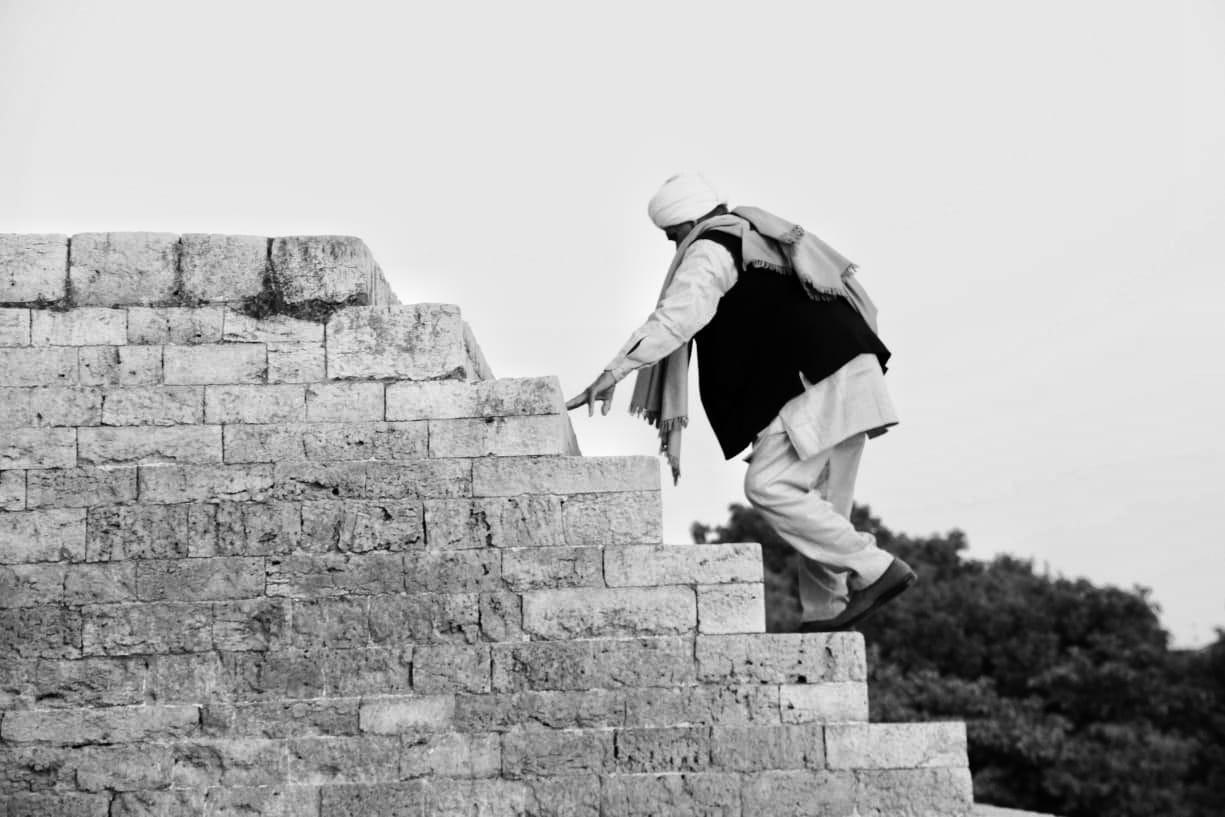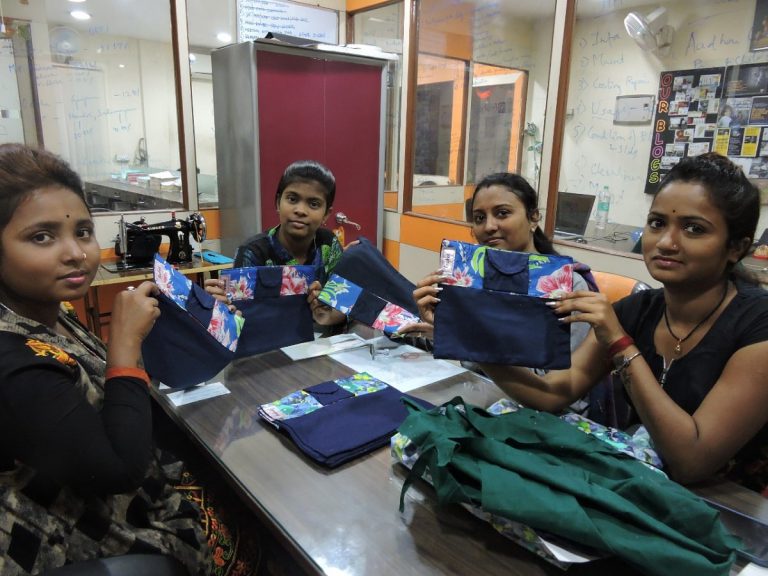The secret to success lies in being patient and overcoming fear of failure
We all have some aspirations in our life, we all dream of something we want to achieve in our life, we all want to be successful, some of us even want to become great and be remembered in history. But what stops most of us in realizing our goals, why only a few people achieve their goals? There might be many answers to this, but the most essential thing which stops us from coming out of our self-made cocoon is the fear of failure.
Most of us fear what others say in case of failure. What if the risky decision affects our material possessions? What if I remain unemployed if I pursue my passion, what if I’m not able to present in front of the clients correctly, and so on. These self-made psychological assumptions are the main hindrance in achieving success.
Whereas, those people who can overcome their fear of failures, register their name in history. Thomas Alva Edison failed more than 10,000 times, to find the right element for a bulb. Nelson Mandela spent over 27 years in jail to become president of South Africa and end apartheid there. Jack Ma, rejected 30 times in job interviews to become the largest E-commerce giant (Alibaba) in China. Dr. A.P.J Abdul Kalam, failed as a Mission director in one of the launches of ISRO, to become the Missile man of India.
What did these great personalities had in common? The answer is pretty simple, their patience to overcome failures made them successful and great. They had the burning desire to rise again after they were knocked down. Stones were thrown at them. Still, they converted them into milestones through their hard work, dedication, and, most importantly, their patience. When they failed, they didn’t behave like victims, by criticizing the circumstances and blaming their luck. Still, they saw the opportunity in their setbacks.
They fought the times, they failed, only to rise as superstars. They didn’t look backward. With whatever resources they had, whatever challenges were thrown at them, they accepted them with grace. They were prepared to encounter any tsunami of failures, with a smile on their face, hope in the heart and fire in the belly.
Moving forward, we will go even deeper and find out the importance of patience in overcoming failures and achieving success. For this, we will analyze different examples cutting across a plethora of sectors and also see how these traits can be applied by us. We will also discuss the techniques of overcoming the fear of failures and master the weaknesses through patience.
To understand this, the evolution of Homo-sapiens from being hunters and gatherers to settled farmers and from settled farmers to today’s tech-savvy human offers a great example. From the discovery of fire to the invention of the wheel and other equipment by the early man. And today, after the first, second, and third industrial revolution (IR), we are witnessing the fourth IR driven by Artificial Intelligence. This technological success over lakhs of years reflects how we must have overcome multiple difficulties and failures through our patience. But, surprisingly, today only a few of the homo-sapiens possess this trait.
Further, if we peek into our history, successful rulers like Ashoka the Great, displayed exemplary patience. Though he embraced Buddhism, he respected different ideas, faiths, and religions, which was reflected in his Dhamma. This shows his patience and tolerance towards all religious beliefs. He didn’t fear how the Buddhists would react if he embraces all religions. Even today, amidst growing communal tensions, possessing this trait by political leaders and society in general, would strengthen our credentials as a secular nation. And this will be a big success considering the vast diversity of India.
Apart from this, in the 19th-century social reformers like Raja Ram Mohan Roy, Ishwar Chandra Vidyasagar, Swami Vivekananda, Swami Dayananda, failed many times to end the evils prevailing at that time. They were bullied, threatened, and ridiculed, but they were not afraid of failures. With their patience, they ultimately succeeded in curbing evil practices like Sati and child marriages, while promoting widow remarriage and education. If they had been afraid of failures, we might have lived with harmful practices to date.
Even today, we, as educated citizens of society, should raise our voice against evils like sexual harassment at workplace, dowry, domestic violence, corruption. We might fear opposition and failure in doing so. Still, it is essential to realize that success comes with some efforts, demanding patience.
In the political sphere also, people who overcame the fear of failure with patience became successful. For instance, Mahatma Gandhi was adamant about his principles of Non-Violence and Satyagraha. He didn’t bow before anyone, but at the same time, remained non-violent. He said,
You can chain me, you can torture me, you can even destroy this body, but you can never imprison my mind
Mohandas Karamchand Gandhi
This shows his fearlessness and patience concerning his principles. But today, it is too rare to find a person who adheres to his/her own principles consistently. The reason is we are afraid of failures and lack patience. For instance, we oscillate between being honest and dishonest depending upon circumstances. This fear of failure and impatience with our principles, will not take us anywhere in the long run. Thus patience concerning our policies without any fear of failure is the key to success, as is reflected from Mahatma Gandhi’s success in liberating India.
In the corporate sector, too, personalities like Steve Jobs show, fear of failure was alien to them. He only experimented and learned out of his mistakes. This patience is reflected in the success of Apple products today. Likewise, Jeff Bezos, Tim Cook, Elon Musk, Azim Premji are pioneers due to their endurance and risk appetite. We need more such entrepreneur like spirit. Most of us are looking for easy ways, like getting a job and feeling satisfied. This is because we are afraid of failing in our own business. But we need to understand, to be successful in business, we have to embrace failures with patience.
Even in Sports, stars like Dhyan Chand, who was called the wizard of a hockey stick, tasted many setbacks. But with his patience, he took India to great heights in hockey. Likewise, the Great Sachin Tendulkar, after ruling over the heart of people for years, was ridiculed as Endulkar during his rough phase. But he embraced his failures, practiced even harder with patience, and made a comeback, to rule the hearts of people once again. Similarly, Mary Kom, Roger Federer, Tiger Woods displayed such traits. We need more such superstars today, especially in the Olympics, displaying these traits of fearlessness and patience.
Not to forget the Entertainment sector, where celebrities like Kishore Kumar, Amitabh Bachchan, Lata Mangeshkar tasted success because they overpowered setbacks with persistence.
Even in issues related to the environment, we must learn something from young environment activists like Greta Thunberg. Her fearlessness in pushing for intense action against global warming is for everyone to see. In this context, even we can take such initiatives that benefit the environment. Though the risk for failure and determination required is high, that is the cost of success.
In Sciences also, Mathematicians like Aryabhatta must have had displayed enormous fearlessness and patience to come up with theorems and proofs which are valid to date. Similarly, Stephen Hawkings discovered the deadly disease of amyotrophic lateral sclerosis (ALS) at the age of 21 years. But it didn’t prevent him from contributing enormously to the field of physics. Likewise, Albert Einstein was considered a slow learner and lazy student in the early years. He even failed and made many mistakes in his works. But this didn’t deter him from being one of the most influential scientists of the 20th century.
If we look today, the appetite to take a risk in scientific experiments is meager in India. This is because we are afraid of failure. The youth of India should overcome this fear and take part in more research and development related work. It will also help in improving our rankings in the Global Innovation Index further.
Lastly, in Administration, civil servants like TN Seshan changed the face of how elections in India were conducted. He introduced a Model code of conduct (MCC) to discipline political parties. His patience to encounter challenges in implementing MCC was exemplary. We need more such civil servants today, given the condition of bureaucracy in India.
From the number of examples discussed, cutting across different fields, it is evident that the secret for success or to achieve greatness is not to fear failures, as they are the very foundation of success. What is important is we learn from our failures patiently. As Winston Churchill said, “Success consists of going from failure to failure without losing enthusiasm.”
But it is essential to note, it is imperative to sustain success. Many can succeed for a short period, but very few continue their success for long. Those who understand this become greats because they know, “Nothing fails like success.”
Now that we are aware that embracing failure and overcoming it with patience is a secret to success, the million-dollar question is how to develop this trait. For this, the most important role is of the parents and teachers. Parents should make their children aware that failures are a part of the journey. They should not stop their child from participating in new things and taking reasonable risks, because that’s how they will become tolerant to failures and learn new things. As A.P.J Abdul Kalam said,
Without your involvement, you can’t succeed, and with your involvement, you can’t fail
APJ Abdul Kalam
Similarly, teachers should not judge the child only by exam results and prepare them for much more significant challenges in life. They must impregnate in the head of the child the virtues of embracing failure and patience. The high suicide rate among students aged 15-29 years, is due to fear of failure in competitive exams. If we make the child strong from the beginning, such unfortunate incidents can be avoided.
For those who have passed the childhood stage, the key lies in practicing taking calculated risks, without the fear of failure and with patience. If scientific studies are to be believed, if we practice the same thing continuously, we can hardwire it in our neurons, and it becomes our habit over a period.
Apart from this, practicing Yoga and Meditation can be a game-changer because it improves our ability to judge things more patiently. Moreover, the technique of affirmations and visualizations which monks have practiced for years is equally compelling. It involves creating an imaginary mental image of the outcome we want. For instance, if someone wants to be a cricketer, then the mental model can be of playing for India. It has to be practiced daily. It instills a lot of positivity psychologically over a period. This, in turn, reduces the fear of failure and enhances our risk appetite.
Another vital thing is Personal Mastery. If we are confident of our skills and ability, it is less likely we will fear any adverse outcome. In addition to this, we must read the autobiographies of successful people. Because over some time, we start to imbibe their traits subconsciously.
Last but not least, if we want to remove the fear of failure, we need to focus less on material possessions and more on our passion. This virtue can unravel the gates of happiness in our life forever.
Thus, in a nutshell, we can say that at some point in time in our life, we all fail. But what is important is our attitude towards failure, how we embrace it and overcome it. How we apply our patience, to master over our shortcomings. This is the secret of success.
While all of us can’t be a Mahatma Gandhi or a Michelangelo or a Picasso, but what we can do, is to identify our weakness by not fearing it and work on it patiently to master over them.
As Martin Luther King Jr said:
If you can’t fly, then run,
If you can’t run, then walk,
If you can’t walk, then crawl,
But whatever you do, you have to keep moving forward
Akash Goyal has graduated from NIT Jaipur. He is a consultant in business analytics and a contributing writer at The ArmChair Journal
Featured Image Credits: Sri Harsha Dantuluri








Very nice article.